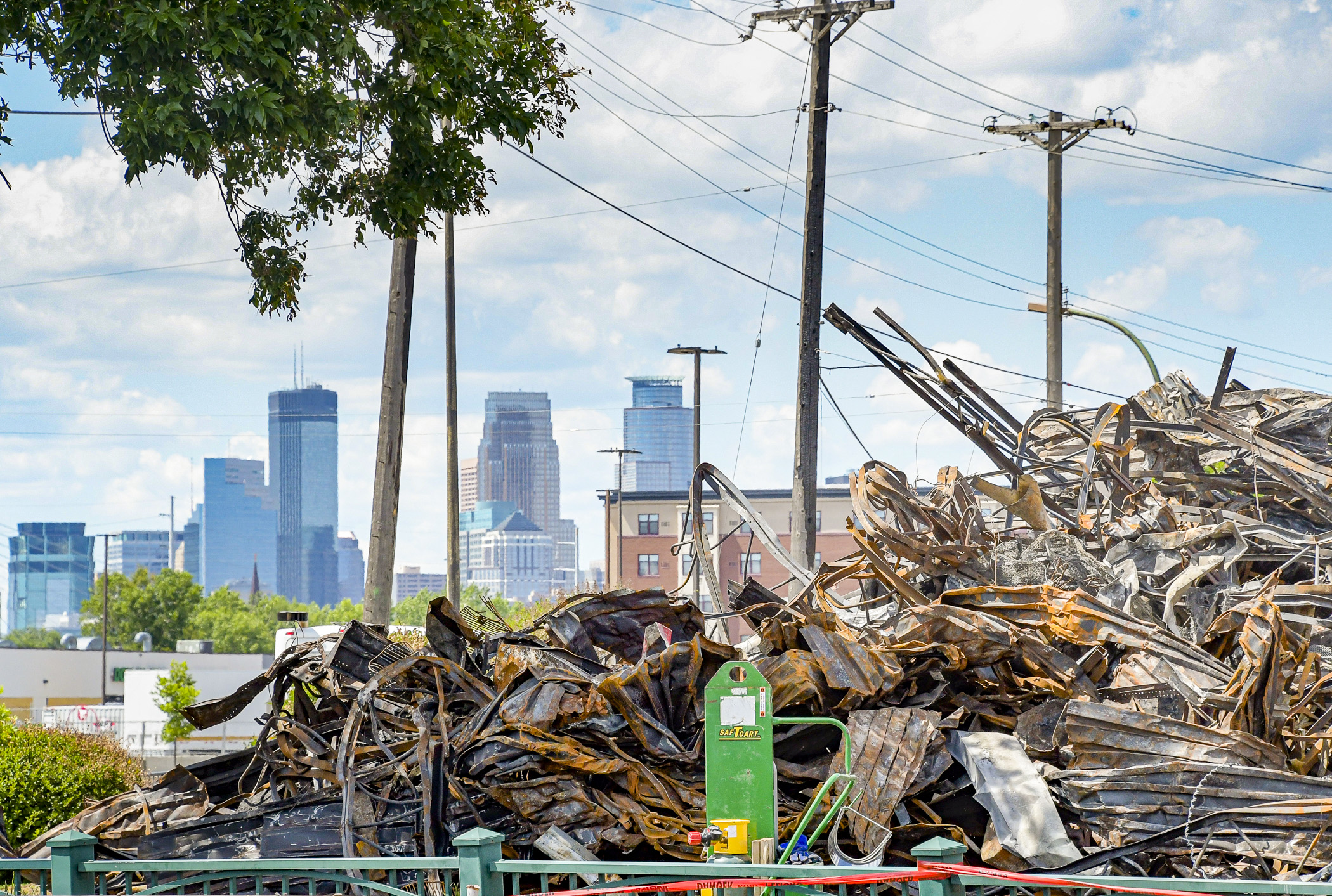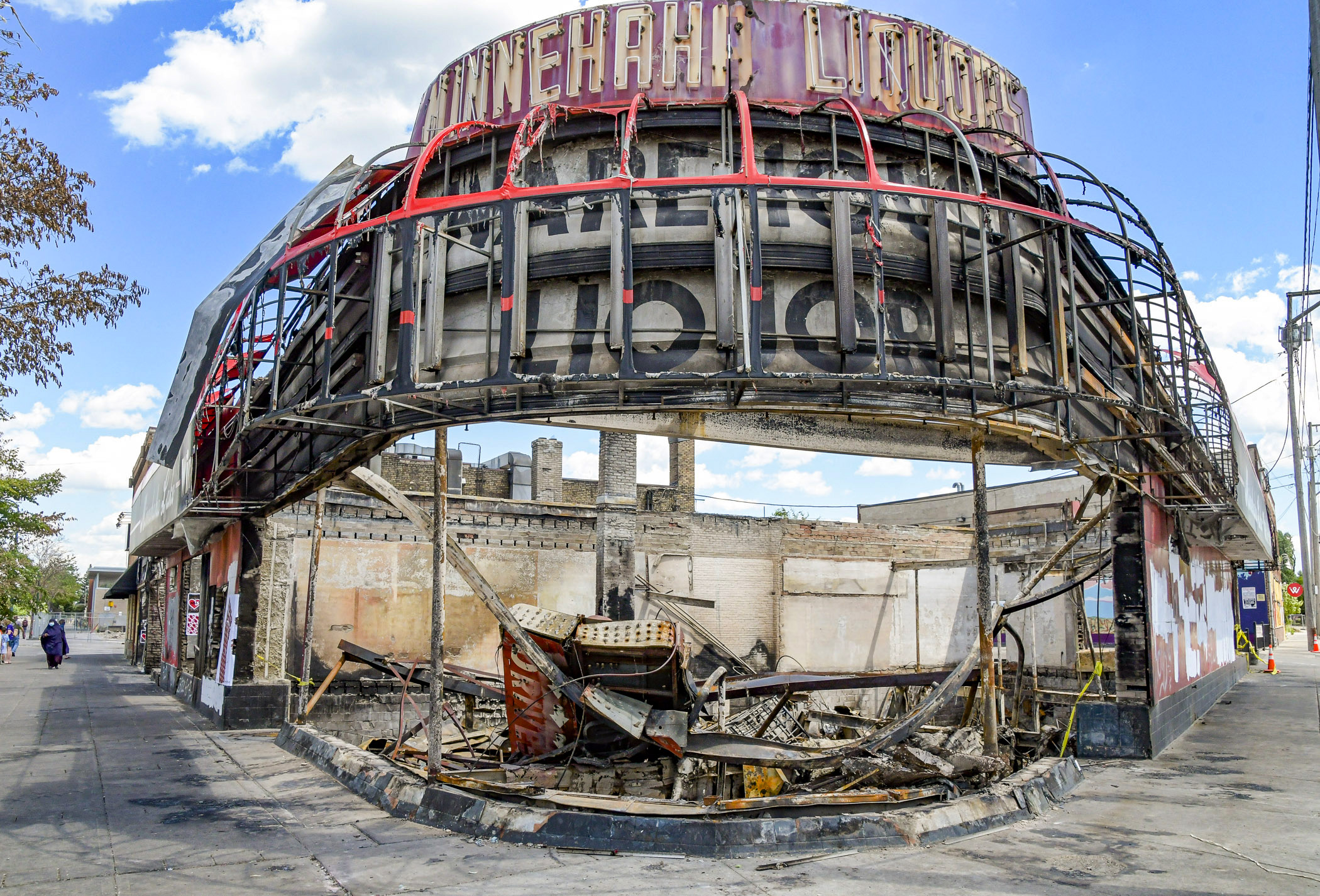Disagreement flares over use of disaster assistance dollars to rebuild following civil unrest

By most accounts, the state’s disaster assistance fund is good legislation. The account sets aside money that can be used to quickly respond to disasters such as floods, tornadoes, and blizzards.
So a House bill that would appropriate $30 million to the Disaster Assistance Contingency Account in fiscal year 2021 would be non-controversial, right?
Wrong.
The discussion on HF38 became very political at the Wednesday meeting of the House Industrial Education and Economic Development Finance and Policy Committee when lawmakers debated whether disaster assistance money should be used to rebuild properties damaged during the civil unrest in Minneapolis last year.
The committee took no action. There is no Senate companion.
Following a presentation on the disaster account by Joe Kelly, state director of Homeland Security and Emergency Management, discussion turned to SF7, which would modify the disaster assistance account statute to prohibit spending on “a catastrophe caused by civil unrest.”
The legislation, sponsored by Sen. Julie Rosen (R-Fairmont), would prevent state money from going to Minneapolis and Hennepin County to rebuild after last year’s civil unrest.
Rep. Rod Hamilton (R-Mountain Lake) questioned whether Gov. Tim Walz’s decision to use money from the disaster account to help rebuild parts of Minneapolis is proper because the “funds would be used for riots” and not natural disasters the law was created to address.
Although the law lists the kinds of natural disasters eligible for funds, Kelly said it also states disasters include “regardless of cause, any fire, flood, or explosion.”
Money from the disaster account, Kelly said, could therefore only be used to pay for public clean-up operations and public infrastructure damaged or destroyed by fires in Minneapolis and Hennepin County.
Rep. Cedrick Frazier (DFL-New Hope) is troubled lawmakers in both bodies are discussing withholding disaster assistance “to an area that we know has historically had policies put in place that have caused some of the deepest disparities that we have in the state.”
“We must, as a state, enact legislation to take care of our communities,” he said. “I couldn’t fathom the thought of not supplying disaster relief to Greater Minnesota when a tornado comes down.”
 Committee members discussed SF7, which would modify the disaster assistance account statute to prohibit spending on “a catastrophe caused by civil unrest.” House Photography file photo
Committee members discussed SF7, which would modify the disaster assistance account statute to prohibit spending on “a catastrophe caused by civil unrest.” House Photography file photoRep. Heather Edelson (DFL-Edina) noted that about 90% of disaster funds spent since the fund creation in 2014 have gone to Greater Minnesota.
“We all are one state, and it’s really disheartening to say what is worthy and what is not worthy when it’s a state disaster,” she said.
Hamilton said he appreciated those points of view, but added concern that the damages in Minneapolis were “extremely expensive” and paying for them out of the disaster account would set a bad precedent.
“This account will be drained very, very quickly … if we use these funds for the riots,” he said.
Rep. Gene Pelowski, Jr. (DFL-Winona), the committee chair and bill sponsor, reiterated that the committee would take no action on the bill until these and other issues are debated more fully. He said he would soon introduce a companion to SF7 to separate the debate on how much money to transfer from the General Fund to the disaster assistance account from a debate over what the funds are available for.
More on the contingency fund
The 2014 law establishing the disaster assistance account appropriated $3 million. The contingency account has been funded each biennium since, with amounts ranging from $5.4 million to $20 million. In 2019 it was replenished with $10 million.
[MORE: Read about the contingency fund in Session Daily]
The account was created to provide immediate disaster response funding without further legislative action. Prior to its creation, the Legislature would need to convene every time a disaster was declared, often in a special session, to appropriate money toward response efforts.
“This account has served Minnesota communities very well,” said Kelly. “Since the account was established, the Legislature has not met in special session to appropriate funds for disaster assistance.”
Kelly said governors have declared 52 disasters since 2014, and the fund has paid out $104 million in that time. Since then, the Legislature has replenished the account with $108 million, leaving a current balance of $4 million.
In budget recommendations released Tuesday, Gov. Tim Walz recommends a $15 million transfer from the General Fund to the contingency account for anticipated disaster assistance needs for the remainder of the 2020-21 biennium, and $25 million for the 2022-23 biennium.
Related Articles
Search Session Daily
Advanced Search OptionsPriority Dailies
Legislative leaders set 2026 committee deadlines
By Lisa Kaczke Legislative leaders on Tuesday officially set the timeline for getting bills through the committee process during the upcoming 2026 session.
Here are the three deadlines for...
Legislative leaders on Tuesday officially set the timeline for getting bills through the committee process during the upcoming 2026 session.
Here are the three deadlines for...